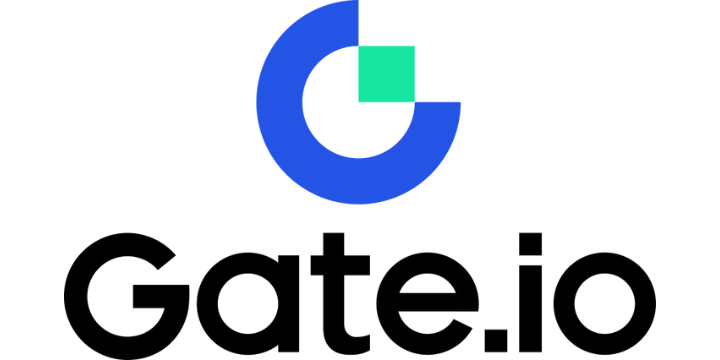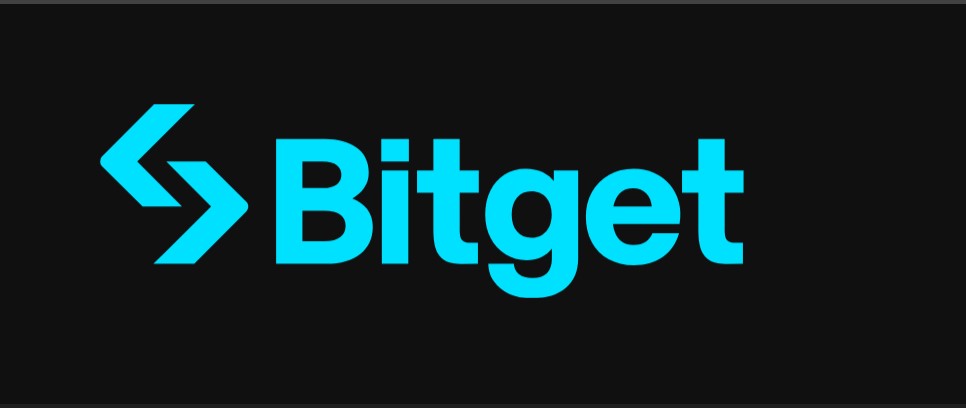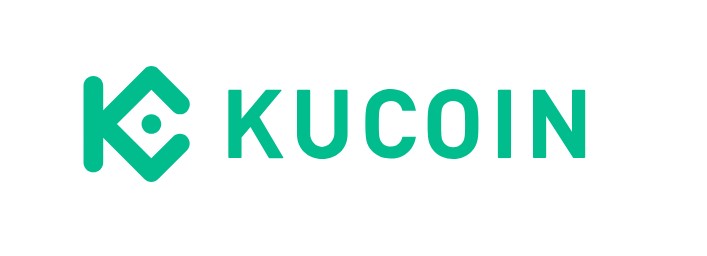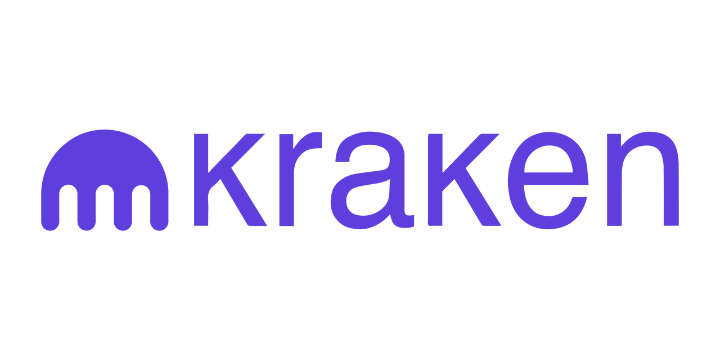Cryptocurrencies have gained significant popularity in recent years. And with it, the demand for crypto exchanges has also increased.
The United Kingdom is no exception to this trend, and as of 2024, numerous crypto exchanges are operating in the country. However, with so many options, which is better for you?
Therefore, we have created a list of Bitcoin exchanges based on various factors such as security, fees, user interface, trading volume, and customer support.
So, let’s review and compare the 11 best crypto exchanges in the UK. Some of them also comply with the FCA regulations.
List of Best Crypto Exchanges UK in 2024
In the UK, the top-rated cryptocurrency exchanges provide customers with a broad selection of coins and charge minimal fees.
They also support various payment options, including debit/credit cards and electronic wallets, and maintain low minimum deposits. Also, we prioritize exchanges that operate within a robust regulatory framework.
Here are the 11 best crypto exchanges in the UK in 2024 based on our research:
- OKX: Overall Best Crypto Exchange UK
- Gate.io: UK’s Best Crypto Exchange for Low Market Cap Altcoins
- Bybit: Best Crypto Derivative Exchange in the UK
- Bitget: Cheapest Crypto Exchange in the UK
- Binance: High Liquidity UK Cryptocurrency Exchange for Beginners
- CEX.io: Best Bitcoin Trading Platform in the UK
- eToro: Best Crypto Trading Platform in the UK
- Kucoin: Top-Rated Crypto Exchange UK for Copy Traders
- Huobi Global: Best Cryptocurrency Exchange for Staking
- Kraken: Top Digital Asset Trading platform for professionals
- Crypto.com: Best FCA Regulated Crypto Exchange in the UK
Related Article: Best Crypto Exchanges in Australia (Updated in 2024)
1. OKX
![11 Best Crypto Exchanges UK (Updated in [currentmonth] [currentyear]) 27 Okx Homepage](https://coinwire.com/wp-content/uploads/2023/05/okx-homepage-1024x465.png)
- Supported Cryptocurrencies: 340
- Trading Fees: 0.08% maker and 0.1% taker
- Is it Solvent: Yes
- GBP Deposits and Withdrawals: Yes
- Payment methods: Bank transfer, Debit cards, and ApplePay credit cards
OKX is a cryptocurrency exchange and wallet platform that caters to millions of customers worldwide and is also available in the UK.
The platform provides various products like trading bots, Staking and Earning, Lending & Borrowing, and NFT Marketplace.
It also has its blockchain network, OKX Chain, and a native token, OKB. This helps developers to build DApps and use infrastructure like OKX Oracle.
The exchange offers over 340 cryptocurrencies and backs up more than 500 trading pairs, including major tokens such as BTC, ETH, ADA, SOL, NEAR, ATOM, and many more.
OKX is one of the best crypto exchanges for margin trading options, with a leverage of up to 10X, along with futures trading and perpetual swaps with a leverage of up to 125X.
🎁 Unlock the Crypto Mystery! Exclusive Offer for Traders. Sign up for OKX today using code “CWCRYPTOEXUK” to receive a Mysterious Box Worth Up to $10,000 and enjoy a 20% Discount on Trading Fees! 💰
Pros and Cons of OKX
Pros:
- Large selection of cryptocurrencies available for trading
- Advanced trading features for experienced traders
- User-friendly interface with easy deposit and withdrawal options
- High liquidity and competitive transaction fees
Cons:
- Not regulated by the Financial Conduct Authority (FCA)
- Has experienced security breaches in the past
2. Gate.io
![11 Best Crypto Exchanges UK (Updated in [currentmonth] [currentyear]) 28 Gateio Homepage](https://coinwire.com/wp-content/uploads/2023/05/gateio-homepage-1024x408.jpg)
- Supported Cryptocurrencies: 1694
- Trading Fees: 0.2% for both maker and taker
- Is it Solvent: Yes
- GBP Deposits and Withdrawals: No
- Payment methods: Visa, Mastercard, Apple Pay, or Google Pay
Gate.io offers spot and margin trading, options, futures, and derivatives for investors, expanding its services to other markets.
Gate.io supports almost all the leading coins in the industry, including the top 20 cryptocurrencies by market cap. Users can easily access popular coins/tokens such as Bitcoin, Ethereum, and Dogecoin.
Additionally, the platform offers a vast selection of altcoins and 2700+ trading pairs, allowing traders to diversify their portfolios.
Depending on the market, you can use margin leverage trading ranging from 3X to 10X. However, it is FCA-regulated but does not allow the withdrawal of GBP. Users must go through a mandatory KYC process to deposit or withdraw crypto funds.
Related Article: Gate.io Review
Pros and Cons of Gate.io
Pros:
- Offers a wide range of cryptocurrencies to trade, including many altcoins
- Cloud mining for miners
- Provides advanced trading tools and features for experienced traders
- No limit on Minimum crypto deposit
- 100% UK regulatory compliance
Sign up for Gate.io using the code “BgdCUgtf” to receive up to $100 in reward bonus and enjoy -10% trading fees now.
Cons:
- Mobile app is not user friendly
- Limited fiat currency support
3. Bybit
![11 Best Crypto Exchanges UK (Updated in [currentmonth] [currentyear]) 29 Bybit Homepage](https://coinwire.com/wp-content/uploads/2023/05/bybit-homepage-1024x516.jpg)
- Supported Cryptocurrencies: 373
- Trading Fees: 0.1% for both maker and taker orders
- Is it Solvent: Yes
- GBP Deposits and Withdrawals: Yes
- Payment methods: Card Payments, P2P, bank transfers, etc.
Bybit is another centralized crypto exchange. It offers a user-friendly platform for trading crypto derivatives such as Futures and Options, launchpad projects, and an NFT Marketplace.
It has over 15 million users worldwide and supports over 520 crypto pairs, including major coins like BTC, ETC, and DOT.
Bybit charges a tiered fee structure based on a maker-taker model, and users can trade with up to 100X leverage. The exchange is registered in the British Virgin Islands and available worldwide to customers.
The platform also offers many other features like trading bots, copy trading, participation in PoS coins, and crypto loans.
Related Article: Bybit Review
Pros and Cons of Bybit
Pros:
- 520+ trading pairs available
- High trading volume and liquidity
- User-friendly trading interface
- Advanced trading features such as leverage trading and futures contracts
- 24/7 customer support
Cons:
- Not regulated
- Limited payment options for UK investors
4. Bitget
![11 Best Crypto Exchanges UK (Updated in [currentmonth] [currentyear]) 30 Bitget Homepage](https://coinwire.com/wp-content/uploads/2023/05/bitget-homepage-1024x545.jpg)
- Supported Cryptocurrencies: 513
- Trading Fees: 0.08% – 0.1% for both maker and taker orders
- Is it Solvent: Yes
- GBP Deposits and Withdrawals: Yes
- Payment methods: VISA, Mastercard, Apple Pay, Banxa, Mercuryo, etc.
Bitget Exchange offers 690+ digital asset pairs for trading, including BTC/GBP, ETH/GBP, LTC/BTC, and many more. The exchange also provides traders access to various trading products, including spot trading, perpetual contracts, options, and leverage trading.
The exchange employs advanced security measures, including multi-factor authentication, SSL encryption, and cold storage of user funds, to ensure the safety of its users’ assets.
The platform includes real-time price charts, technical analysis indicators, order book depth charts, and more. Traders can also set up automated trading strategies using the exchange’s API.
Pros and Cons of Bitget
Pros:
- Trade more than 500 digital assets
- Perpetual contracts with no expiry date
- Transparent on-chain reserved assets
Cons:
- Relatively new and untested reputation
- Not regulated
(Bitget is offering many special promotion programs for CoinWire. Register your new account via the link below to grab the limited-time offer)
5. Binance
![11 Best Crypto Exchanges UK (Updated in [currentmonth] [currentyear]) 31 Binance Homepage](https://coinwire.com/wp-content/uploads/2023/05/binance-homepage-1024x458.jpg)
- Supported Cryptocurrencies: 383
- Trading Fees: 0.1% for both maker and taker orders
- Is it Solvent: Yes (100% 1:1 backed)
- GBP Deposits and Withdrawals: Yes
- Payment methods: credit card, bank transfer, and P2P orders
Binance is a top cryptocurrency exchange with a $12B daily trading volume and 13.7M+ active users globally. It lets users buy, sell and store digital assets and access 383+ cryptocurrencies and 1600+ trading pairs.
Founded in 2017 by Changpeng Zhao, it’s known for its user-friendly interface, low fees, and advanced charting tools with trading view integration.
The trading platform offers borrowing and lending, leverage trading up to 125X, and derivatives products such as Binance Futures, Binance Leveraged tokens trading, and Binance margin trading. The exchange is not available in some countries. However, it has a large global presence and is available in the UK.
Binance also offers a non-custodial crypto wallet, ICO launchpad, and NFT marketplace on Binance smart chain (BSC).
Pros and Cons of Binance
Pros:
- $10 billion+ daily trading volume
- Launchpad for ICO investments
- Football Fan token launchpad
- 100% solvent with $60b+ PoR
Cons:
- Only Binance markets are FCA regulated
6. CEX.io
![11 Best Crypto Exchanges UK (Updated in [currentmonth] [currentyear]) 32 Cexio Homepage](https://coinwire.com/wp-content/uploads/2023/05/cexio-homepage-1024x423.jpg)
- Supported Crypto assets: 200+
- Trading Fees: 0.15% maker and 0.25% taker cost
- Is it Solvent: Data Not available
- GBP Deposits and Withdrawals: Yes
- Payment methods: Debit and credit cards
CEX.IO was launched in 2013 as a cloud mining service that allowed users to mine Bitcoin using cloud-based technology. In 2015, the platform expanded to include exchange services, enabling users to buy and sell cryptocurrencies using fiat currencies.
Over the years, it has become one of the most popular cryptocurrency exchange platforms in the UK and worldwide, with over 4 million registered users.
It supports many trading pairs, including BTC/USD, BTC/EUR, BTC/GBP, ETH/USD, ETH/EUR, ETH/GBP, and more. The CEX.io platform also supports trading pairs for other cryptocurrencies such as Litecoin, Ripple, Bitcoin Cash, and Dash.
Related Article: CEX.io Review
Pros and Cons of CEX.io
Pros:
- Licensed by FCA
- GBP trading pairs available for British users
- Mobile app for easy trading
Cons:
- Less no. supported coins and tokens
- High trading fees
7. eToro
![11 Best Crypto Exchanges UK (Updated in [currentmonth] [currentyear]) 33 Etoro Homepage](https://coinwire.com/wp-content/uploads/2023/05/etoro-homepage-1024x470.jpg)
- Supported Crypto assets: 70+
- Trading Fees: 1% for maker and taker
- Is it Solvent: Data Not available
- GBP Deposits and Withdrawals: Yes
- Payment methods: Bank Transfers, E-wallets (PayPal, Skrill, Neteller), and eToro Money.
eToro is a social trading and investment platform allowing users to invest in many financial instruments, including stocks, cryptocurrencies, commodities, and more.
The platform was launched in 2007 and has since grown to become one of the world’s leading social trading networks, with over 30 million registered users in more than 140 countries.
eToro also offers a range of other features, including social newsfeeds, personalized news, and analysis, as well as a range of educational resources and tools to help users improve their trading skills.
Its user-friendly interface, extensive range of features, and FCA registration make it a top pick for UK crypto traders.
Pros and Cons of eToro
Pros:
- Easy deposits and withdrawals by UK e-wallets
- FCA regulated
- Portfolio diversification on different asset classes
- Low minimum deposits
Cons:
- High fees of Debit/credit card deposits
- Limited range of trading pairs
- High platform fees
8. Kucoin
![11 Best Crypto Exchanges UK (Updated in [currentmonth] [currentyear]) 34 Kucoin Homepage](https://coinwire.com/wp-content/uploads/2023/05/kucoin-homepage-1024x345.png)
- Supported Crypto assets: 828
- Trading Fees: 0.1% for maker and taker
- Is it Solvent: Yes
- GBP Deposits and Withdrawals: Yes
- Payment methods: Credit, debit, and bank transfer
KuCoin is a global digital exchange offering its users a wide range of trading types and features. It offers margin trading, allowing users to borrow funds to increase their trading position. And futures trading will enable users to trade perpetual and quarterly futures contracts with up to 100x leverage.
The platform also has Pool-X staking platform, where users can stake their cryptocurrencies and earn rewards.
Additionally, users can receive discounts on trading fees by holding and staking KuCoin’s native cryptocurrency, KCS. It also supports API integration, allowing users to automate their trading strategies using trading bots like 3commas or Cryptohopper.
The exchange has included 2FA, SSL encryption, and hot/cold wallet storage for user fund security.
(Register your new Kucoin account via the link below to grab the limited-time offer)
Pros and Cons of Kucoin
Pros:
- Cloud and liquidity mining for miners
- High staking APY
- 800+ low-cap altcoins trading
- Copy trading and automated grid trading bots
Cons:
- Security breaches in the past
- Not licensed for UK traders
9. Huobi Global
![11 Best Crypto Exchanges UK (Updated in [currentmonth] [currentyear]) 35 Huobi Global Homepage](https://coinwire.com/wp-content/uploads/2023/05/huobi-global-homepage-1024x433.jpg)
- Supported Crypto assets: 611
- Trading Fees: 0.2% for maker and taker
- Is it Solvent: Yes
- GBP Deposits and Withdrawals: Yes
- Payment methods: P2P supports 40+ payment services
Huobi Global offers a wide range of tradable assets, including digital currencies, leverage trading, copy trading, and futures contracts.
The platform supports more than 611 crypto assets and 800+ trading pairs, including Bitcoin, Solana, Ripple, and many others. It also offers several fiat currencies, including USD, EUR, and GBP.
Its crypto trading fees are competitive with other major exchanges. The fees are based on a tiered system that rewards high-volume traders with lower fees. The maker fee ranges from 0.02% to 0.20%, while the taker fee ranges from 0.04% to 0.20%.
Huobi Global also offers a VIP program that provides additional benefits to high-volume traders. HT token holders also receive a 10% discount.
Related Article: Huobi Global Review
Pros and Cons of Huobi Global
Pros:
- Highly reputed crypto exchange in the industry
- Reserve funds in case of emergency
- Market for 800+ assets
- High security of funds
Cons:
- Leverage trading is not available for UK traders.
- The platform is not user-friendly.
10. Kraken
![11 Best Crypto Exchanges UK (Updated in [currentmonth] [currentyear]) 36 Kraken Pro Homepage](https://coinwire.com/wp-content/uploads/2023/05/kraken-pro-homepage-1024x476.jpg)
- Supported Coins and tokens: 226
- Trading Fees: 0.16% for the maker and 0.26% for taker orders
- Is it Solvent: Yes
- GBP Deposits and Withdrawals: Yes
- Payment methods: Credit and Debit cards, Google Pay, and Apple Pay
Kraken is a cryptocurrency trading platform that was launched in 2013. It is a subsidiary of Kraken, one of the UK’s largest and best crypto exchanges.
UK investors can take advantage of its wide range of advanced order types, including market orders, limit orders, stop orders, and trailing stop orders. The platform has a high level of liquidity and volume.
Traders can easily buy and sell crypto without experiencing slippage or other issues. This can be particularly useful for traders who are looking to execute large trades.
Kraken also offers staking, which involves holding cryptocurrencies to earn rewards. Staking can be a useful way for long-term investors to earn passive income.
Pros and cons of Kraken
Pros:
- User-friendly interface
- GBP bank deposits are available
- High level of security with 2-factor authentication and Anti-phishing code.
Cons:
- Comparatively high trading fees
- High fees on GBP withdrawals
11. Crypto.com
![11 Best Crypto Exchanges UK (Updated in [currentmonth] [currentyear]) 37 Cryptocom Homepage](https://coinwire.com/wp-content/uploads/2023/05/cryptocom-homepage-1024x388.png)
- Supported Coins and tokens: 234
- Trading Fees: 0.075% for both maker and taker orders
- Is it Solvent: Yes
- GBP Deposits and Withdrawals: Yes
- Payment methods: Credit/Debit cards, Crypto.com pay
Crypto.com offers a DeFi crypto wallet, a staking platform, a Visa debit card that allows users to spend their cryptocurrencies at merchants worldwide, and a mobile app.
The platform supports a wide range of cryptocurrencies, a built-in NFT Marketplace, Lending, and crypto loans. It also has DCA and grid trading bots for automated trading strategies.
The Exchange is famous for its fast trading engine. Spot, futures and perpetual contracts, OTC trading, and leverage trading are also available for advanced traders.
Related Article: Crypto.com Review
Pros and Cons of Crypto.com
Pros:
- FCA regulated
- Lowest fees in the crypto space
- High liquidity and volume for fast order book matching
- Offers various payment methods
Cons:
- Not all cryptocurrencies are available
- 2.99% fees on card deposits
Comparison between Best UK Crypto Exchanges and Apps in 2024
| Exchange | Number of Supported Coins | Trading Fees | FCA Regulated | UK Availability |
| OKEx | 340 | 0.08 – 0.1% | No | Yes |
| Gate.io | 1694 | 0.2% | Yes | Yes |
| Bybit | 373 | 0.075% – 0.1% | No | Yes |
| Bitget | 513 | 0.08% – 0.1% | No | Yes |
| Binance | 383 | 0.1% | Only Binance markets is FCA regulated | Yes |
| CEX.io | 200+ | 0.15% – 0.25% | Yes | Yes |
| eToro | 70+ | 1% | Yes | Yes |
| KuCoin | 828 | 0.1% | No | Yes |
| Huobi Global | 611 | 0.2% | No | Yes |
| Kraken | 226 | 0.16% – 0.26% | No | Yes |
| Crypto.com | 234 | 0.075% | Yes | Yes |
How Does Cryptocurrency Work?
Cryptocurrency works by utilizing a decentralized ledger called a blockchain. A blockchain is a distributed database maintained by a computer network.
Each block in the blockchain contains a record of several transactions. And, once a block is added to the chain, it cannot be altered. This unique point makes the blockchain an immutable, tamper-proof and secure ledger.
When a cryptocurrency transaction occurs, it is broadcasted to the computer network that maintains the blockchain.
The computers verify the transaction by solving complex mathematical algorithms. Once the transaction is verified, it is added to the blockchain.
What is a Crypto Exchange?
A cryptocurrency exchange is a digital platform that allows users to buy, sell, and trade digital assets.
What type of Assets? It can be anything like digital currencies, NFTs, or virtual properties.
The platform functions similarly to traditional financial institutions, with a central authority or company as the intermediary between buyers and sellers.
One of the critical benefits of cryptocurrency exchanges is their global accessibility. Since these platforms operate online, they are not limited to one country or region. Instead, anyone with an internet connection can access the exchange and participate in the crypto economy.
This has opened up new opportunities for people worldwide to invest in digital currencies, diversify their portfolios, and potentially earn significant returns.
Related Article: Best Crypto Exchanges in Europe (Updated in 2024)
How Does a Cryptocurrency Exchange Work?
Cryptocurrency exchanges work similarly to traditional stock exchanges. Buyers and sellers place orders to buy crypto or sell a specific cryptocurrency, and the exchange matches them based on price and quantity.
Once a match is found, the exchange facilitates the transaction by transferring the cryptocurrency from the seller to the buyer and vice versa.
Cryptocurrency exchanges typically use a combination of encryption, cold storage, and multi-factor authentication to ensure the security of transactions.
Types of Crypto Exchanges in the UK
There are several types of crypto exchanges with specific features and functions.
1. Centralized Crypto Exchanges UK
Centralized crypto exchanges are the most common type of digital exchange and operate similarly to traditional stock exchanges.
The exchanges are owned and operated by a central authority. They manage the trading platform, set the rules, and facilitate trading. Some of the popular centralized crypto exchanges in the UK are eToro, Binance, Bybit, Bitget, and Kucoin.
2. Decentralized Exchanges UK
Decentralized exchanges (DEXs) are a relatively new type of crypto exchange. They operate on a peer-to-peer basis on a blockchain network. This means these exchanges are not controlled by any central authority or middleman.
This provides greater control and ownership over one’s assets and improved security and privacy.
Some popular DEXs in the UK include Uniswap, Sushiswap, PancakeSwap, and TraderJOE on the Avalanche network.
Note: DEXs work on smart contracts; it is impossible to restrict or ban these types of exchanges. They are governed by community groups (native token holders). Updates and restrictions are based on voting and proposals by the community.
3. Peer-to-Peer Crypto Exchanges UK
Peer-to-peer (P2P) crypto exchanges are platforms that allow users to buy and sell cryptocurrencies directly with each other.
These exchanges do not have a central authority, and the users themselves manage all transactions. The best example of P2P crypto exchanges in the UK is the PaxFul crypto platform.
Methodology: How to Choose the Best Crypto Exchange in the UK?
1. Security
The exchange should have robust security measures, including two-factor authentication (2FA), SSL encryption, and cold storage for storing users’ funds.
Verify if the platform has been hacked in the past. Also, Check the history of keeping users’ funds safe.
2. Regulations
Regulation is another essential factor to consider when choosing a crypto exchange. In the UK, crypto exchanges must register with the Financial Conduct Authority (FCA) to operate legally.
The FCA regulates the crypto industry to prevent fraud and ensure that exchanges follow strict security and customer protection standards.
This ensures that the exchange is held to high standards and can provide a secure trading environment for users.
3. Reputation & User Reviews
The exchange should have a good track record of maintaining user funds and should provide ample measures to safeguard against hacks or theft.
Check the exchange’s reputation online by looking at reviews from other users and checking forums like Reddit.
User reviews are an excellent way to gauge the quality of a crypto exchange. Check review platforms like Trustpilot and G2.
4. Platform Fees
Crypto exchanges charge fees on trades, deposits, and withdrawals. It would be best to choose an exchange with competitive fees and transparency in its pricing structure.
Avoid exchanges with hidden fees or costs that are too high, as they can significantly eat into your profits.
5. User Interface and Customer Support
A good user interface is easy to navigate, and users must be able to find the information they need quickly.
The trading platform should be user-friendly, with various trading tools and options and responsive customer support.
6. Trading pairs
The exchange should offer a wide variety of cryptocurrencies for trading, including popular coins such as Bitcoin, Ethereum, Litecoin, and Ripple. It should also have a good selection of fiat currencies to facilitate easy deposit and withdrawal.
It must support low-cap altcoins and new cryptocurrencies for more profits and ROI
7. Liquidity
Liquidity refers to the ease of buying or selling cryptocurrencies. Exchanges with high liquidity will have more significant volumes of trades, which can result in better prices for traders.
8. Solvency
Solvency refers to the ability of the exchange to meet its financial obligations. This includes honouring withdrawals and maintaining adequate reserves to cover losses.
You can check the platform’s proof of reserves data at Coinmarketcap or Defillama.
How to Trade Cryptocurrency in the UK?
To trade cryptocurrency in the UK, follow these general steps:
- Choosing an exchange: There are many cryptocurrency exchanges available in the UK. Each with its own set of features, fees, and user interface. Do your research and compare all available exchanges before choosing. Some popular exchanges include Coinbase, Binance, Bitpanda, Kraken, and eToro.
- Creating an account: This typically involves providing your name, email address, and password. Solve the captcha and enter the platform. Now, you can trade but can only withdraw with ID verification.
- Verifying your identity: Most cryptocurrency exchanges require users to verify their identity to comply with anti-money laundering (AML) and know-your-customer (KYC) regulations. This may involve submitting additional identification documents and waiting for approval. The verification process will take only 10-15 minutes.
- Adding funds: After your account is set up and verified, you can deposit GBP to your account using a bank transfer, debit or credit card, or other payment methods supported by the exchange. Each exchange will have a list of accepted payment methods, so make you check these terms carefully before adding funds.
- Buying Cryptocurrency: With funds in your account, you can now buy cryptocurrency. Most exchanges will have a section dedicated to buying and selling cryptocurrencies. Select the cryptocurrency you want to buy, enter the amount you want to purchase, and review the transaction details before submitting the trade.
- Withdrawing your cryptocurrency: After buying cryptocurrency, you can withdraw it to an external wallet or leave it on the exchange for trading or future transactions.
Types of Tax on Crypto Assets in the UK
Disclaimer: The information provided below is based on our knowledge and research. It is possible that some details may be inaccurate or out of date. The tax laws and regulations surrounding cryptocurrencies are constantly evolving. Seek professional advice before making any financial decisions.
- Capital Gains Tax (CGT): CGT is applied to the profits from the sale or disposal of assets, including cryptocurrencies. In the UK, CGT is currently set at a rate of 20% for higher-rate taxpayers and 10% for basic-rate taxpayers.
- Income Tax: It is levied on an individual’s income, including any income earned from digital currencies.
- Corporation Tax: If a UK company is involved in cryptocurrency-related activities, such as mining or trading, it may be subject to Corporation Tax.
- Value Added Tax (VAT): VAT may be applicable if cryptocurrencies are used to purchase goods or services.
- Stamp Duty Land Tax (SDLT): If the property is purchased using cryptocurrencies, then SDLT may be applicable. If you buy NFTs or digital land in the metaverse and earn profits, it is also subject to tax.
- National Insurance Contributions (NICs): NICs are contributions made by employees and employers towards social security benefits in the UK. Individuals who are paid in cryptocurrencies for their work may be subject to NICs.
What are the risks of using a Crypto Exchange in the UK?
- Security risks: Digital exchanges are vulnerable to security breaches. This can result in the loss of funds. For example, in 2019, the Binance exchange was hacked, resulting in over $40 million in cryptocurrency loss.
- Regulatory risks: Cryptocurrency regulations are still evolving, and centralized exchanges may face regulatory scrutiny and potential shutdowns.
- Custody risks: When you use a crypto exchange, you entrust your digital assets holdings to a third party. If the exchange goes bankrupt or is insolvent, your funds could be at risk.
- Liquidity risks: Crypto exchanges can experience liquidity issues, particularly during times of high volatility or when a sudden surge in demand occurs.
- Operational risks: The Exchanges can experience technical issues, such as server downtime or slow processing times, which can impact your ability to trade or withdraw funds.
- KYC/AML risks: Centralized exchanges are required to comply with Know Your Customer (KYC) and Anti-Money Laundering (AML) regulations. If the exchange fails to implement adequate KYC/AML measures, it could result in legal or regulatory actions. This could impact your ability to access your funds.
Final Thoughts: Which UK Crypto Exchange Should You Choose?
Finding the right crypto exchange can be difficult, but it’s crucial for a successful cryptocurrency investment journey. There are different factors to consider, including security, fees, reputation, user interface, and the cryptocurrencies available.
Based on our list, the best Crypto exchanges in the UK are:
- OKX
- Gate.io
- Bybit
- Bitget
- Binance
- CEX.io
- eToro
- Kucoin
- Huobi Global
- Kraken
- Crypto.com
But remember, the right crypto exchange for you will depend on your investment goals, trading experience, and personal preferences.
So, do your research and choose a crypto exchange with excellent security features and an easy-to-use interface.
Elevate your crypto trading career with CoinWire Trading signals. Get Premium daily signal calls, trading insight, updates about the current market, and analytics about hidden crypto gems now.
Best Crypto Exchanges UK – FAQs
What is the most secure crypto exchange in the UK?
The most secure crypto exchange in the UK is one that employs a range of security measures to protect user funds, such as multi-factor authentication, cold storage of funds, and regular security audits.
Some of the top UK-based exchanges known for their security include CEX.io, Kraken, Crypto.com, and Bitstamp.
What are the fees associated with using a UK Crypto trading platform?
The fees related to using a crypto exchange are trading, deposit, withdrawal, and network fees. Some exchanges may also charge additional fees for specific features or services.
These additional costs include using crypto Debit cards, lending and borrowing services, and exchange launchpad for participating in IEOs.
Can I use a crypto exchange in the UK without providing personal information?
It depends on the exchange’s policies. Many exchanges do not require KYC for trading. However, you must undergo a Know Your Customer (KYC) process before withdrawing assets. This involves providing personal information such as ID and proof of address.
There are also decentralized exchanges (DEXs) that allow users to trade cryptocurrencies without KYC requirements. You can use Uniswap V3 for Ethereum network trading and Pancakeswap for BSC crypto assets trading.
Are there any regulations governing the UK crypto exchanges?
Yes, the Financial Conduct Authority (FCA) regulates cryptocurrency exchanges in the UK.
The FCA has set guidelines for crypto businesses, such as conducting proper due diligence on customers and implementing anti-money laundering (AML) measures.
Is it illegal to buy crypto in the UK?
No, it is not illegal to buy cryptocurrencies in the UK. In fact, cryptocurrencies such as Bitcoin, Ethereum, and Litecoin are legal to buy, hold and sell in the UK.
However, some regulations govern the use and trading of cryptocurrencies, such as anti-money laundering laws, tax obligations, and FCA regulations on the operation of cryptocurrency exchanges.
![11 Best Crypto Exchanges UK (Updated in [currentmonth] [currentyear]) 1 Best Crypto Exchanges Uk Featured Image](https://coinwire.com/wp-content/uploads/2023/05/best-crypto-exchange-uk-featured-image.jpg)






![MoonPay Review ([currentyear]): Fees, Pros & Cons, and Sign-Up Guide. 56 Moonpay Review Featured Image](https://coinwire.com/wp-content/uploads/2023/09/moonpay-review-featured-image-1024x683.jpg)
![Binance Futures Quiz Answers (Updated in [currentmonth] [currentyear]) 57 Binance Futures Quiz Answers Featured Image](https://coinwire.com/wp-content/uploads/2022/12/binance-futures-quiz-answers-1024x683.png)
![Best Crypto Exchanges in Philippines (Updated in [currentmonth] [currentyear]) 58 Best Crypto Exchanges In Philippines Featured Image](https://coinwire.com/wp-content/uploads/2024/04/best-crypto-exchanges-in-philippines-featured-image-1024x683.jpg)
![Buy Bitcoin with Apple Pay No Verification in [currentyear] 59 Buy Bitcoin With Apple Pay No Verification](https://coinwire.com/wp-content/uploads/2024/01/buy-bitcoin-with-apple-pay-no-verification-1024x683.jpg)
![Top 10 Best Crypto Signals Telegram Channels & Groups in [currentyear] 60 Best Crypto Signals Telegram Channels](https://coinwire.com/wp-content/uploads/2023/07/best-crypto-signals-telegram-channels-1024x683.jpg)